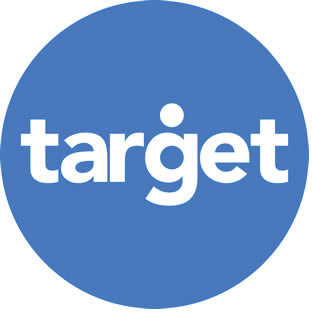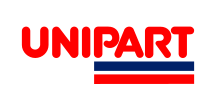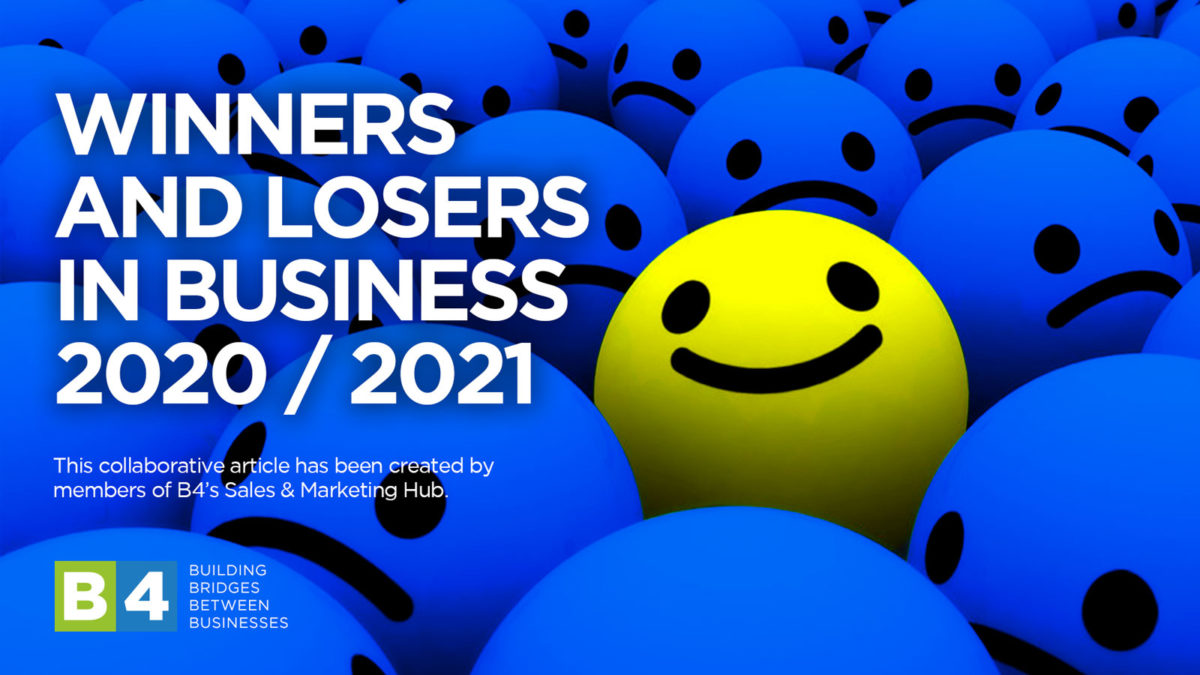
Winners and Losers in business – 2020 / 2021
There’s no doubt that for every business success story in 2020 there have been adequate tales of woe grabbing the national headlines and felt through all levels of business. But why have the winners done so well and why have the losers been hit so hard?
In many cases, it’s clear that those that have been hit hardest were those that relied on their customers being present. It’s not their fault that lockdown after lockdown drained their businesses of face to face opportunities with their customers, but is that the case throughout?
Retail has been massively hit during the last year, but weren’t we already seeing the signs of ailing department stores creaking? Stores such as Debenhams were obviously going to struggle and it was no surprise to hear in early January that six of its stores, including the iconic Oxford Street site, would close permanently. Even John Lewis, a group many of us would regard as ‘having their house in order’ will struggle with costly and empty department stores, despite strong on-line trading.
Representatives of B4’s Sales & Marketing Hub, including Frank Nigriello (Unipart), Sam Kandiyali (Target PR), Emma Easton (Business Bollox) and Alex Sayers (XIST2) discussed the winners and losers of the pandemic so far and identified why.
Businesses that thrived because of the pandemic
Just think of what you did pre pandemic and what you can do now or have started to do since the pandemic to gain a quick overview of who has won and who has lost.
Can still do
Shop in person – supermarkets
Shop on-line – retail
Computer games
Takeaway delivery
On-line learning
Garden Centres
DIY
Watch on-line content – films etc….
Spend / invest money

Can’t do
Go to shops
Go to restaurants
Go on holiday
Personal care – hairdressers
Go to the gym
Physical experiences – sport, entertainment
Face to face meetings
Events, conferences

Things I’m doing now that I didn’t do before
Exercise at home or on-line
On-line meetings
On-line experiences
On-line trading
Drink at home

Things you don’t need to do as much that you might have done before
Wear work clothes / nice clothes for meetings or occasions
Maintain appearance
Drive
Chew gum / eat mints for a fresh breath for meetings
Use of toiletries / perfume etc…

Things you can do more of that you did before
Spend time with family
DIY / work in the garden
Exercise
Thinking time
Learning
Reading
Home renovations / makeovers

CNN reported on the big winners and losers in 2020 as follows:
Big Winners
Housing
Cannabis
Bitcoin
Video games
Big Retail
Big Tech
Creators
Live-streaming
Big Losers
Oil
Solar
Banks
Airlines
Shopping Centres
Car manufacturers
Manufacturing
Film Industry
Travel & Hospitality
Read more here: https://edition.cnn.com/2020/12/30/business/winners-losers-2020-business/index.html
Highlights:
- Netflix revenues soared 75% in the last three quarters
- Zoom’s sales increased 307%
- Amazon saw sales grow by £67 billion, or 35% in the first three quarters of 2020
- Air travel isn’t expected to recover for several years – this will not just impact the airlines but also the hospitality sector as business adapts to a world of meetings on-line
- Big retailers aren’t expected to struggle as they ramp up their digital operations
- Car industry has struggled and services such as UBER have stuttered
- Airbnb has thrived – it went public in December with a valuation of $90 billion – more than twice the valuation of Marriott and three times that of Hilton
Surprising omissions from the CNN article include pharmaceuticals / vaccine manufacturers and PPE manufacturers or businesses that have pivoted, like distilleries, to provide hand sanitizer etc…
Although the CNN article claims banks have struggled, Frank Nigriello believes the opposite. “Banks have done well – making more money than ever before – individuals and corporates who are sitting on piles of cash needing to do something with it to get a return. Similarly strategists and financial advisers including accountants and solicitors.”


Adding something of a reality check, Alex Sayers chimes in with examples of businesses which have really prospered from the misfortune of others. “Will-writers have done exceptionally well. At one point people were writing wills on car bonnets outside of hospitals in a desperate bid to get their affairs in order. It’s a bleak angle but two doors down from where I live I have a couple of guys that work for a grave digger and they’ve never been busier, as I am sure you can imagine.”
Will-writers have done exceptionally well. At one point people were writing wills on car bonnets outside of hospitals in a desperate bid to get their affairs in order.
Alex Sayers
“The warehousing and distribution sector has exploded in the last year and delivery drivers who do the last five miles have never been as busy…that business has grown exponentially.
“Food deliver giants Deliveroo, Just Eat and Uber Eats are all doing well – that doesn’t reflect that restaurants are doing well, but those that have pivoted to home delivery have. Prepared food for distribution via supermarkets has done well but a restaurant / pub that has pivoted might have done well depending on how well it can get it’s message out. I’ve seen a lot of marketing materials from local pubs which doesn’t really entice me to go and get food from them.
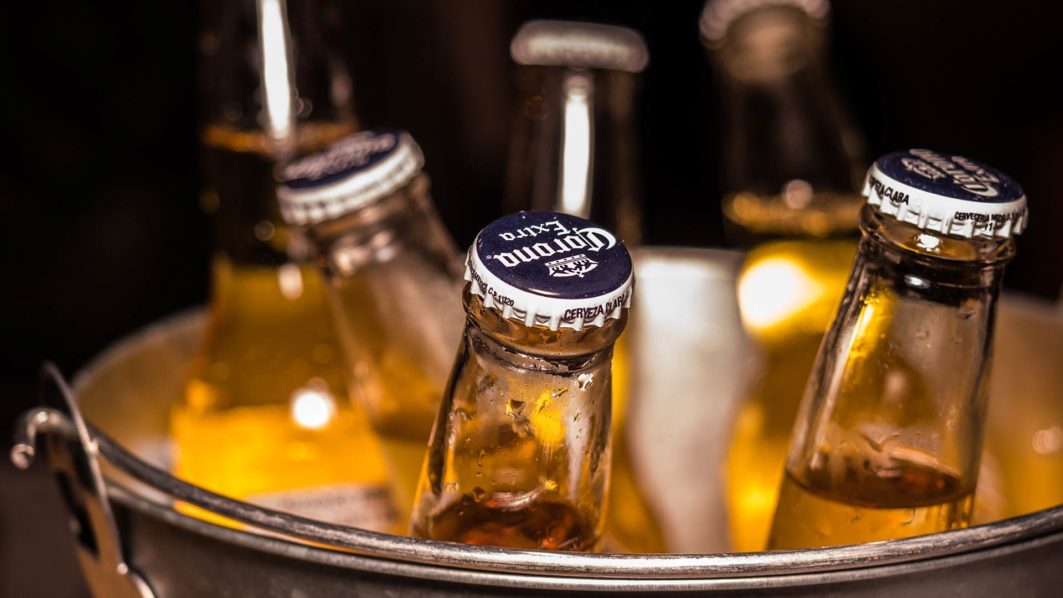
“It’s a real restructuring of your offering – we tried (my bright idea) to prepare food for staff in our canteen (a few years ago) to take home with them in the evening to save them having to go shopping after work. I didn’t think it through…not only do you have the safety and hygiene aspects to consider, but you’ve got to provide something to move the food in, maintain the temperature, decide what equipment you need to flash freeze food etc….. It’s not as simple as making a sandwich, wrapping it up and taking it home…when you’re talking about warm food it’s a whole different ball game. If there’s a risk that someone gets food poisoning then you might as well not bother.”
Emma Easton added, “Restaurants have a lot of challenges to be fair – open, closed, am I pivoting, am I not? I have a contact who supplied to football stadiums but now pivoted to B to C and have grown their business three times over. It’s about how much cash you have in the bank, how willing you are to transform and how long you think this is going to last.”
It’s about how much cash you have in the bank, how willing you are to transform and how long you think this is going to last.
Emma Easton
One winner which has benefited from the closure of restaurants and bars are the supermarkets who have thrived with alcohol sales that the restaurants and bars can’t sell (just check out the bottle banks when you drop off your empties!)
Ironically on the call 5 out of 6 of us were wearing glasses, but Sam Kandiyali, who includes an opticians as a client, said they didn’t benefit as much as you might think with more and more people glued to their laptops, potentially testing their sight. “During the first lockdown they were only open for routine care, but once we were out of lockdown they did see a positive upturn in business.”
During the first lockdown they were only open for routine care, but once we were out of lockdown they did see a positive upturn in business.
Sam Kandiyali
You might have seen Michael Mcintyre’s sketch where he meets a fortune teller pre lockdown (https://youtu.be/LEr_84HJbgk). The fortune teller explains that his big trip won’t be the safari he’s booked next year but the trip to the garden centre…certainly big winners of the last year, along with DIY stores.


On-line experiences have also become more creative and lucrative in the absence of being able to enjoy any sort of mass participation event outside. Blenheim’s Christmas Light Trail is always a success but this year, despite some interruptions, it has been one of its most successful, in part down to the fact that families had no pantos or Santa’s grottos they could take the kids to. One the creative experiences front, Alex Sayers illustrates the point with the success of a client of XIST2, “We built an e-commerce site for a client (gin brand) back in 2019 and it went live in February last year. They used to run a lot of25 to 30 gin shows across the country every year. Now they’re selling gin tour experiences on-line and people are paying £250 top dollar for a distillery tour on line where you get bottles, cocktail shakers etc…. so it’s an interactive experience. They’re now doing more and more on line – you wouldn’t believe the spike on payday! and have been very innovative in reaching their target market. One of the the reasons they’ve done so well is that they have 750,000+ followers on social media…they can sell 200 kits very effectively on the back of from one social media posting.”
One of the the reasons they’ve done so well is that they have 750,000+ followers on social media…they can sell 200 kits very effectively on the back of from one social media posting.
Alex Sayers
The pet industry has also seen a huge boom, not always for the right reasons. As solicitors have seen the usual post-Christmas divorce rush magnified during COVID, the rate of abandoned dogs has soared, as have prices for dogs especially. Sam adds, “My friend owns a reptile business and reptile food sales have boomed as people are buying snakes and lizards.”
Other winners include e-learning and Alex Sayers (who seemingly has a very colourful network ranging from grave-diggers to gin manufacturers and on-line developers) adds, “a friend at Pharmagenisis a local pharmaceutical company tells me they’re overrun maxed out and can’t get enough developersare struggling to find enough hours in the day and resource to cope with the e-learning demand.”
Why have the winners won?
Emma explains that those that have won have had to take some risks if they weren’t set up to succeed already. “Those businesses that have pivoted successfully during lockdown have had to do so without knowing how successful they would be. It comes down to adaptable you can be and how much effort you can put into it, how much you can take a hit, not lay staff off to help you pivot and ensure you’re doing something which is going to make the changes worthwhile post COVID …. so you don’t have to undo it all again!”
COVID has accelerated trends that were already happening. We’ve almost seen ten years of change in one.
Frank Nigriello
Frank added, “COVID has accelerated trends that were already happening. We’ve almost seen ten years of change in one. The delivery services like Amazon didn’t start because of COVID, COVID enhanced their offering. They were already using data to fuel their business growth and that’s just been exacerbated during COVID. If you made the right bet five years ago you were really well positioned to benefit during COVID. Those that made the right bet, predicted how things were going and had the resources to see it through, have thrived. It’s the speed at which the other businesses that have collapsed that has been astounding – as little as 10 months for massive chains to crumble is remarkable.
“It’s those that have built a digital infrastructure already that have done best because they were already there – app developers, cyber security, computer games….see Argos has thrived but Primark has struggled because they refuse to go on line.
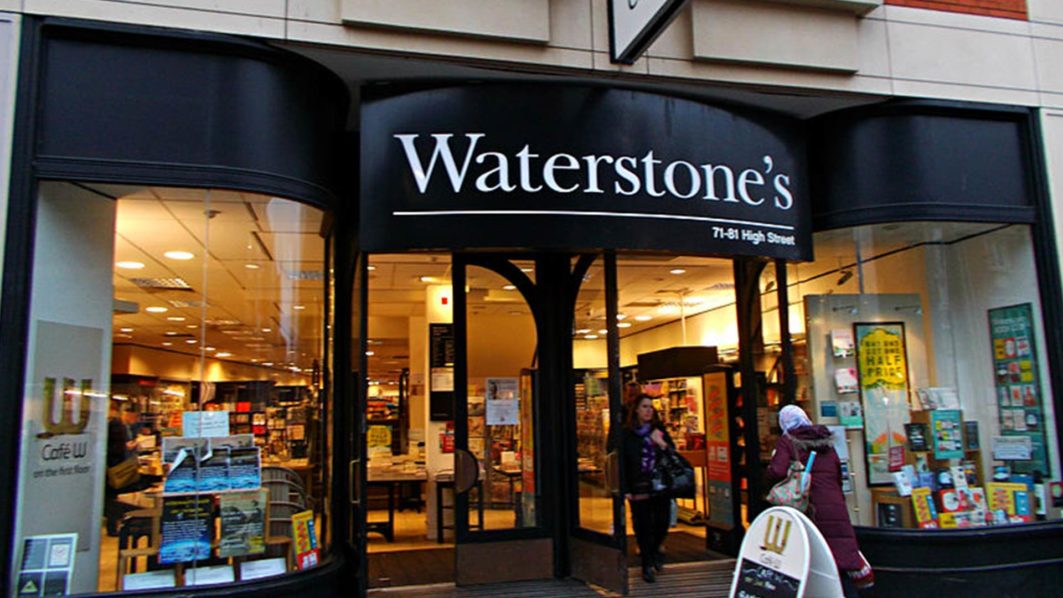
“There have been some near misses too. Waterstones is a client – that idea of having the ‘Waterstones experience’ with a coffee and a book in store stopped overnight and we had a whole site that we thought we would have to furlough. But then the Waterstones on-line business quadrupled in a matter of hours and days and we had to re-shift the whole business to on-line…our guys were good at it and did it quickly. Had Waterstones not pivoted quickly and had a partner that could support them (Unipart) to do that, they could have struggled.”
See more at: https://www.unipart.com/waterstones-case-study/
https://www.unipart.com/unipart-logistics-secures-five-year-contract-extension-with-waterstones/
Who has struggled?
• Hospitality, restaurants, tourism, cab firms, public transport generally.
• Retail – some retail that hasn’t got an on-line outlet.
• Personal care – hairdressers and beauticians.
• Mints, chewing gum sales have declined.
• Automotive industry – “there’s a lot of jobs hanging on there.” Frank.
“A lot of the more traditional car manufacturers were only just looking at their online offering when I was working with them. I see one of the big insurers is selling insurance based on your mileage – seems very sensible…shows a business that has pivoted to the times were living in.” Emma Easton
Repercussions of winners and losers?
So what’s next? Here’s some of the group’s thoughts on what will happen next, perhaps content for a future article:
• Surge in new businesses
• People trying things on their own
• Forcing people to be more creative
• More flexible working weeks and hours
• Reduced birth-rate – some countries already seeing higher death rate than birth rate
Have you got a pivot story you would like to share with the B4 community?
More in Leisure

Helping Ordinary People do Extraordinary Things
B4 Members Hall Personal Training have recently renewed their B4 Membership. Executive Director, Becky Hall, explains more about Hall’s role in the lives of their clients and why renewing with B4 was a simple decision.

Experience ‘Life Below Stairs’ at Blenheim Palace: all-new visitor experience unveiled
From 29th March, step into history as Blenheim Palace unveils ‘Life Below Stairs’ – a groundbreaking new visitor experience that brings the hidden world of Victorian service to life like never before. The experience is set within some of the original working kitchens, open to visitors for the very first time.

Christmas and 2026 group bookings announced at Blenheim Palace with trade pricing...
Blenheim Palace is delighted to announce the highly-anticipated theme of Christmas at Blenheim for 2025 – Palace of Oz where groups can enjoy an enchanting festive experience with exclusive trade pricing.
From this author

Get Support Announced as B4’s Official IT Partner
We are delighted to announced that Oxfordshire’s leading IT Services provider, Get Support, have become B4’s Official IT Partner.

Reliable Vehicle Servicing and Repairs with Pete Thirtle
When it comes to maintaining and repairing your vehicle, trust and expertise are paramount. That’s why Pete Thirtle Vehicle Services stands out as one of the go-to independent garage for drivers in Bicester, Oxford, and the surrounding areas. With a reputation built on honesty, reliability, and top-tier service, Pete can ensure that your vehicle receives the best care possible. B4’s CEO, Richard Rosser, shines the spotlight on the ultra-reliable, Pete Thirtle.

B4 Members enjoy the company of a living legend of the...
In December at Keble College, Peter Bennett-Jones, representing the Lord-Lieutenant as one of her Deputy Lieutenants, officially endorsed Raise’24. As an established television and film producer and agent, we were delighted to recently announce that Peter has agreed to become our Patron.



